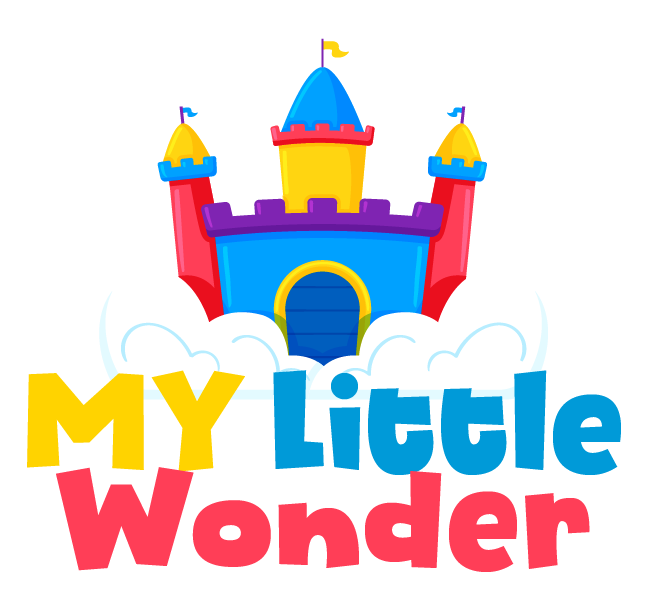Did you know? A baby recognizes their mother's voice from birth and begins bonding immediately. This natural instinct underscores the profound journey of parenting, which shapes a child’s emotional, social, and cognitive development. The early years are especially critical as they lay the foundation for a child’s future growth.
Parenting is as rewarding as it is challenging. While new parents often experience moments of joy and connection, it’s normal to feel overwhelmed and uncertain. This guide provides research-backed strategies and expert advice to help you navigate the first year of parenthood with confidence, ensuring a nurturing environment for your baby and a balanced, fulfilling experience for yourself.
Let’s dive into understanding the transition to parenthood and explore actionable tips to make your journey smoother and more enjoyable.
Understanding the Transition to Parenthood
A. Emotional Changes
Becoming a parent brings a whirlwind of emotions—joy, love, anxiety, and at times, overwhelm. It’s essential to acknowledge and normalize these feelings. Research suggests that most parents naturally develop intuitive responses to their baby’s needs, so trust your instincts. Whether it’s responding to your baby’s cries or understanding their subtle cues, these moments build your confidence as a parent.
Caring for a newborn also demands emotional resilience. Mindfulness practices, journaling, or seeking support from a partner or friend can help manage stress effectively.
B. Physical Changes
The physical demands of caring for a newborn can be exhausting. Sleep deprivation—a rite of passage for many parents—affects cognitive function and mood. While sleepless nights may feel endless, creating a nighttime routine or sharing responsibilities with your partner can help you manage fatigue.
From countless diaper changes to hours spent feeding and holding your baby, the demands are real. Incorporating short bursts of rest whenever possible and focusing on nutrient-rich meals can help you stay energized.
C. Relationship Dynamics
Parenthood changes relationships. Whether it’s navigating new roles or balancing time for each other, open communication becomes essential. Simple actions like expressing gratitude or setting aside time for meaningful conversations can maintain connection. Sharing responsibilities equally and leaning on each other’s strengths as parents fortify the partnership and create a supportive environment for your baby.
Essential Parenting Tips for New Parents
A. Trust Your Instincts
As a new parent, you may feel overwhelmed by advice from family, friends, and the internet. While seeking information is helpful, remember that your intuition is a powerful guide. Babies thrive on responsive caregiving—a parenting style where you respond promptly and appropriately to their needs. Studies reveal that this approach fosters healthy brain development and emotional security.
Your baby’s cues, such as crying, cooing, or even subtle facial expressions, are their way of communicating. Trust yourself to interpret these signs and provide the care they need.
B. Establish Routines
Routines offer a sense of predictability, which is comforting for both you and your baby. Simple daily structures—like scheduled feeding, sleeping, and playtime—can help your baby adapt to their new environment and reduce your stress as a caregiver.
Sample Routine for a Newborn:
- Morning: Feeding, tummy time, and gentle play.
- Midday: Nap followed by a short walk outdoors.
- Evening: Bath time, cuddling, and a lullaby to wind down for the night.
Remember, flexibility is key. While routines are helpful, it’s okay to adjust them based on your baby’s needs.
C. Prioritize Bonding
Bonding is the cornerstone of a healthy parent-child relationship. Techniques like skin-to-skin contact not only enhance emotional connections but also regulate your baby’s temperature and heart rate. During these moments, your baby feels secure and loved.
To maximize bonding, consider using products like Newborn Swaddle Wrap, which offers comfort and helps create a snug, womb-like environment. These tools enhance the bonding experience, especially during quiet times like bedtime.
D. Effective Communication
Even though your baby cannot speak, they’re absorbing every word and tone you share with them. Talking, singing, and reading to your baby are powerful tools for early language and cognitive development. Describe your day, narrate what you’re doing, or sing a soothing tune. These activities stimulate brain development and strengthen your connection.
Emotional communication is equally important. Smile often, make eye contact, and respond with warmth. These actions reinforce your baby’s sense of trust and security.
E. Self-Care for Parents
Parenting is a demanding role, and neglecting self-care can lead to burnout. Taking care of yourself is essential for providing the best care for your baby. Simple practices like deep breathing exercises, quick stretches, or a warm cup of tea during nap time can recharge your energy.
Don’t hesitate to accept help from loved ones or join parenting groups for emotional and practical support. Remember, seeking assistance doesn’t mean you’re failing—it’s a sign of strength and resourcefulness.

Research-Based Insights on Parenting Interventions
A. Overview of Parenting Interventions
Parenting interventions are structured programs designed to support parents in navigating common challenges, such as responding to a baby’s needs or improving sleep habits. These programs often blend scientific research with practical strategies, empowering parents to foster their child’s cognitive, emotional, and social development.
For example, initiatives like Baby Triple P (Positive Parenting Program) have proven to enhance parent-child interactions, improve parental confidence, and reduce stress. Such interventions provide actionable tools to integrate responsive caregiving and tackle typical infant behaviors effectively.
B. Evidence from Meta-Analyses
Extensive studies highlight the significant impact of early parenting interventions on child development. Meta-analyses reveal that these programs improve a variety of outcomes, including:
- Cognitive Growth: Early responsiveness helps shape neural pathways critical for learning and problem-solving.
- Language Skills: Talking and reading during the first year contribute to early vocabulary and comprehension.
- Socioemotional Health: Babies exposed to responsive caregiving are more likely to develop secure attachments and emotional regulation.
These findings emphasize the importance of consistent and attentive caregiving, which doesn’t require perfection—just persistence and love.
C. Successful Programs
Some parenting programs have gained global recognition for their effectiveness. Notable examples include:
- Sleep Training Programs: Structured approaches like bedtime routines and controlled comforting improve sleep quality for infants while reducing parental stress.
- Responsive Caregiving Initiatives: These focus on teaching parents how to interpret and respond to infant cues, enhancing bonding and promoting developmental milestones.
Integrating these practices into daily routines ensures they’re practical and sustainable. Simple actions, such as reading a bedtime story or creating a consistent sleep schedule, can have long-term benefits.
Common Challenges Faced by New Parents
A. Sleep Issues
One of the most frequent concerns among new parents is infant sleep—or the lack of it. Understanding your baby’s sleep cycles can help ease frustration. Newborns typically sleep in short stretches due to their small stomachs, which require frequent feedings.
Strategies for Better Sleep:
- Create a soothing bedtime routine, such as a warm bath followed by cuddling.
- Use white noise machines or gentle lullabies to replicate the womb’s comforting environment.
- Keep the room dark and cool to promote restful sleep.
Be patient—sleep patterns evolve as your baby grows, and consistent efforts will pay off over time.
B. Feeding Challenges
Feeding is another area where many parents face hurdles. Whether you choose breastfeeding, formula feeding, or a combination, what matters most is ensuring your baby is well-nourished and thriving.
Tips for Overcoming Common Feeding Issues:
- For breastfeeding: Seek guidance if you encounter latching difficulties or pain. Lactation consultants can offer invaluable support.
- For formula feeding: Choose an appropriate formula and follow recommended preparation guidelines for optimal nutrition.
- Introduce bottles gradually if transitioning from breastfeeding, ensuring your baby adjusts comfortably.
C. Managing Expectations
The concept of a “perfect parent” is a myth. Every baby is unique, and developmental milestones vary widely. Comparing your journey to others can lead to unnecessary stress. Instead, focus on celebrating small victories and recognizing your efforts.
Remember, parenting is a learning experience, and mistakes are part of the process. What truly matters is your commitment to your child’s well-being and your willingness to adapt as you grow together.
Building a Support System
A. Importance of Support Networks
Raising a child is often described as a journey best taken with the support of others. Support networks provide emotional comfort, practical advice, and a sense of belonging. Whether you’re celebrating milestones or navigating sleepless nights, sharing these experiences with others can reduce feelings of isolation and boost your confidence as a parent.
Having a reliable network ensures you have someone to lean on during tough times, whether it’s help with chores, childcare, or simply an empathetic ear.
B. Types of Support Available
Support comes in many forms, and each has its unique benefits:
- Family and Friends: Grandparents, siblings, or close friends often provide practical help, like babysitting or meal preparation, allowing you to rest or recharge.
- Online Communities: Parenting forums, social media groups, and virtual meetups connect you with parents worldwide, offering advice and encouragement.
- Local Groups and Classes: Many communities host parenting classes or baby groups where you can meet others on a similar journey. These gatherings are great for building connections and sharing tips.
Finding the right mix of support tailored to your needs can make a big difference in your parenting experience.
C. Seeking Professional Help
Sometimes, the challenges of parenting can feel overwhelming. If you find yourself struggling with stress, anxiety, or persistent feelings of inadequacy, professional help can be invaluable. Parenting counselors or therapists offer guidance and coping strategies tailored to your situation.
Additionally, pediatricians and lactation consultants are excellent resources for addressing specific concerns about your baby’s health or feeding. Seeking help is not a sign of failure—it’s a proactive step toward building a happy, healthy family.

Long-Term Parenting Strategies
A. Encouraging Independence
Fostering independence in your child begins in infancy. Allowing your baby to explore their surroundings safely builds confidence and problem-solving skills. As they grow, gradually introduce age-appropriate responsibilities, like picking up toys or choosing their outfit for the day. These small steps nurture self-reliance and decision-making.
B. Promoting Emotional Intelligence
Helping your child understand and manage their emotions is a lifelong gift. Use everyday moments to teach empathy, patience, and resilience. For instance:
- Label emotions: “I see you’re upset. Let’s talk about it.”
- Reinforce positive behaviors: Praise acts of kindness or self-control.
Children who learn to express their feelings constructively often grow into empathetic, emotionally aware adults.
C. Lifelong Learning as a Parent
Parenting evolves as your child grows. Staying open to new ideas, research, and techniques can help you adapt to their changing needs. Whether it’s exploring different disciplinary strategies or learning about their interests, a growth mindset ensures you remain an active participant in their development.
Fun Facts About Parenting
- Skin-to-Skin Contact: This simple practice not only strengthens bonds but also helps regulate your baby’s heart rate and temperature.
- Reading Benefits: Early reading enhances your baby’s cognitive and language development, laying the foundation for future learning.
- Positive Reinforcement: Praising good behavior builds confidence and encourages children to repeat those actions.
Reflecting on the Journey of Parenthood
Parenting is a dynamic and rewarding journey. From trusting your instincts and building routines to prioritizing bonding and seeking support, the tips outlined in this guide are designed to help you thrive in your role as a new parent.
Every parent faces challenges, but it’s important to remember that perfection isn’t the goal. What matters most is your commitment to learning, adapting, and showing love to your child. Celebrate the small victories and embrace the messy, beautiful moments that make parenting special.
Trust yourself, lean on your support system, and cherish the early years with your little one. They’ll grow faster than you can imagine, and every step of the way is an opportunity to create memories that last a lifetime.
Evidence-Based Benefits of Parenting Interventions
| Intervention Type | Outcome Improved | Target Age Range |
|---|---|---|
| Responsive Caregiving | Cognitive and socioemotional growth | 0–3 years |
| Sleep Training Programs | Improved sleep quality, reduced stress | Infants |
| Positive Parenting Programs | Parental confidence, child behavior | 0–12 years |
FAQs
How often should I feed my newborn?
Newborns typically eat every 2-3 hours, amounting to about 8-12 times daily. Following their hunger cues ensures they’re getting enough nutrition.
When can I start tummy time?
Tummy time can begin as early as the first week. Start with short sessions of 1-2 minutes and gradually increase the duration as your baby grows stronger.
What are the benefits of skin-to-skin contact?
Skin-to-skin contact helps regulate your baby’s temperature, heart rate, and breathing while fostering emotional bonding and soothing your newborn.
How do I balance parenting and self-care?
Set realistic goals, prioritize short breaks, and accept help from family or friends. Even small acts, like a quiet cup of tea or a walk, can recharge your energy.
What should I do if I feel overwhelmed?
Feeling overwhelmed is common for new parents. Talk to loved ones, join a parenting support group, or consider seeking professional counseling if needed.
How can I improve my baby's sleep habits?
Consistency is key. Establish a bedtime routine, avoid overstimulation before bed, and create a calm, darkened sleep environment.
What are the first developmental milestones?
Some early milestones include smiling and cooing around 6-8 weeks, lifting their head during tummy time, and recognizing familiar faces and voices.
Why is reading to my baby important?
Reading stimulates brain development, enhances language skills, and provides a comforting bonding activity for you and your baby.
Final Thoughts
Parenting is a journey filled with highs, lows, and countless learning opportunities. With a blend of instinct, research-backed strategies, and a strong support system, you’ll be equipped to navigate this transformative experience. Remember, the love and effort you invest today will shape a brighter tomorrow for your little one.
If you'd like more personalized advice or have additional questions, feel free to ask. Would you like me to expand on specific sections or adjust the content further?




Leave a comment
This site is protected by hCaptcha and the hCaptcha Privacy Policy and Terms of Service apply.